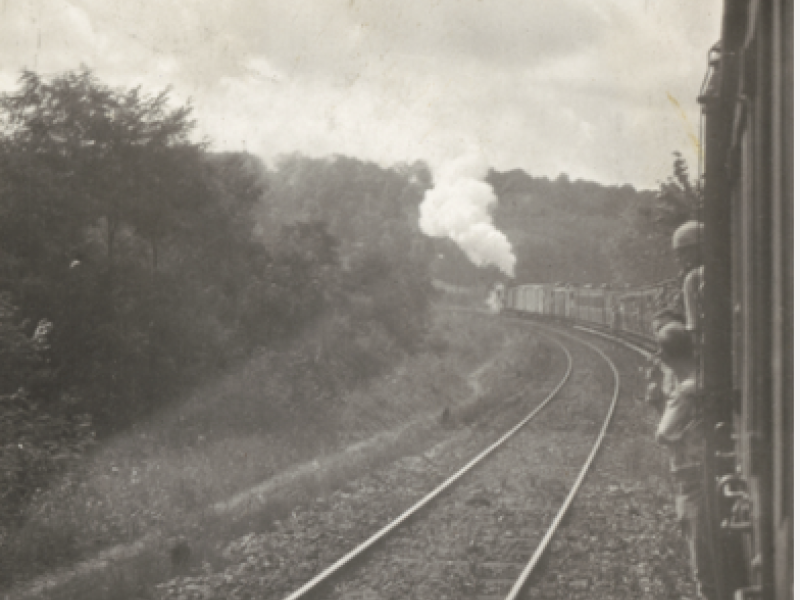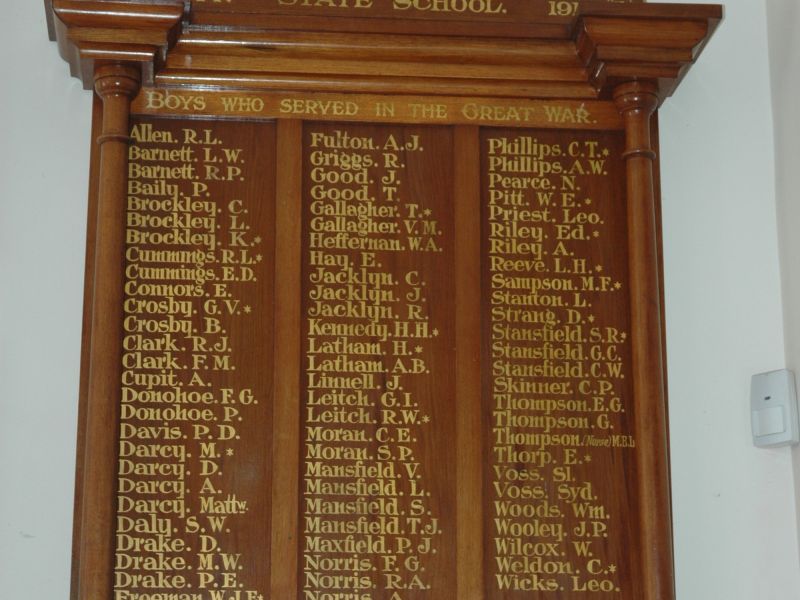Private Lawson Harford Reeve, 12th Battalion, AIF
Lawson Reeve was born on 23 March 1888 to Clement and Sarah Reeve of Franklin, Tasmania. His father had come to Australia as a baby and would show people a picture of the ship he came in with pride all his life.
Lawson shared his name with an older brother who had died as a toddler before Lawson was born. He grew up on the family orchard and attended Franklin state school. The Reeve family were staunch Methodists, and Lawson’s father was a lay preacher in the church for many years, conducting services in the Franklin district. Lawson Reeve attended Sunday school all his life, going on to become a teacher and an active member of the church.
Reeve left his work as an orchardist in August 1915 to enlist in the Australian Imperial Force. He spent some time training in Australia before leaving for active service overseas on board the troopship Orontes with reinforcements to the 12th Battalion in November.
Before he left, the people of Franklin held a social in his honour, during which a fellow Sunday school teacher gave a speech, reminding Reeve that “he had received a good training both at home and in the church, and he hoped that he would stand for principle in camp and amongst those he associated with”.
Reeve first went to Egypt, where the AIF was undergoing a period of training and reorganisation. There he made friends with Chaplain D.B. Blackwood, who later wrote that Reeve “often came out with me and my little parties of decent lads while at the training camp near Cairo. You will be thankful to know he kept straight and clean in the midst of the fierce battle against the awful temptations of Cairo.”
Shortly after arriving in France in March 1916, the 12th Battalion entered the front line in a quieter part of the Western Front to gain valuable trench warfare experience. On 23 June 1916, the battalion came under fire from German artillery, and sustained seven casualties.
One of those was Private Lawson Reeve.
By coincidence, Reeve’s friend from Cairo, Chaplain Blackwood, visited his trench the day after Reeve was killed. He later wrote to Reeve’s parents:
“from what I learned from his mates, it seems he was struck by a bomb and taken instantly without a moment’s pain … you may be justly proud of a fine, manly son, who laid down his life for his country and God’s truth.”
Lawson Reeve was buried in a nearby cemetery under a wooden cross erected by his comrades. Today he lies in the Rue Petillon Military Cemetery in Fleurbaix.
He was 28 years old.
Meleah Hampton, Historian, Military History Section
- Australian War Memorial https://www.awm.gov.au/collection/AWM2017.1.179

 Australian War Memorial
Australian War Memorial